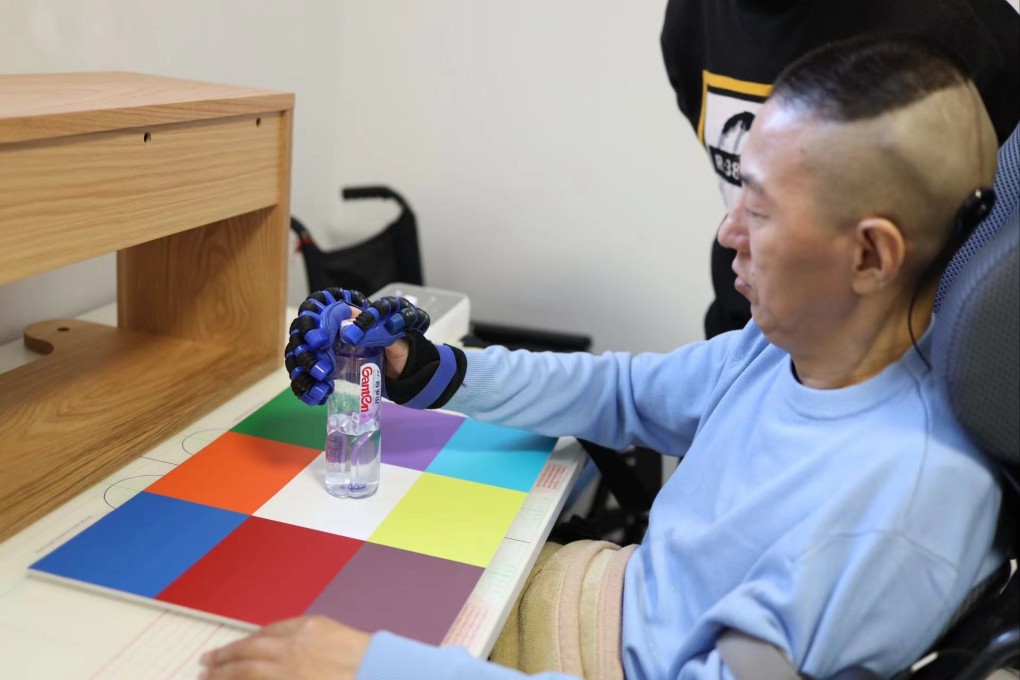Advertisement
Chinese brain chip helps paralysed man regain mobility – and it’s less invasive than Elon Musk’s Neuralink
- The wireless brain-computer interface developed at China’s Tsinghua University allows quadriplegic patient to grab objects with prosthetic hand
- Unlike implant from Elon Musk start-up Neuralink, the Chinese device is not inserted into brain tissue
Reading Time:3 minutes
Why you can trust SCMP
4

Chinese scientists have developed a wireless brain-computer interface implant that they say has made “breakthrough progress” in their first patient and is less invasive than Elon Musk’s Neuralink chip.
Advertisement
Tsinghua University in Beijing announced on WeChat on Tuesday that the device created by its research team had made significant progress in rehabilitating a human patient who received the implant on October 24.
The patient is part of an ongoing human clinical trial that has been registered both domestically and internationally, and the device will have to undergo further study before it can seek approval for clinical use.
Also on Tuesday, Musk announced that the first human patient had received an implant from his start-up Neuralink Corp.
The Chinese team’s implant – called the Neural Electronic Opportunity (NEO) – has allowed a quadriplegic patient to perform hand motions with the help of a wearable prosthetic guided by his brain, according to the university, which added that the feat had been achieved without the risk of damage to neurons.
Brain-computer interfaces (BCI) are devices that create a direct pathway of communication between electrical activity within the brain and an external device, such as a computer.

Advertisement